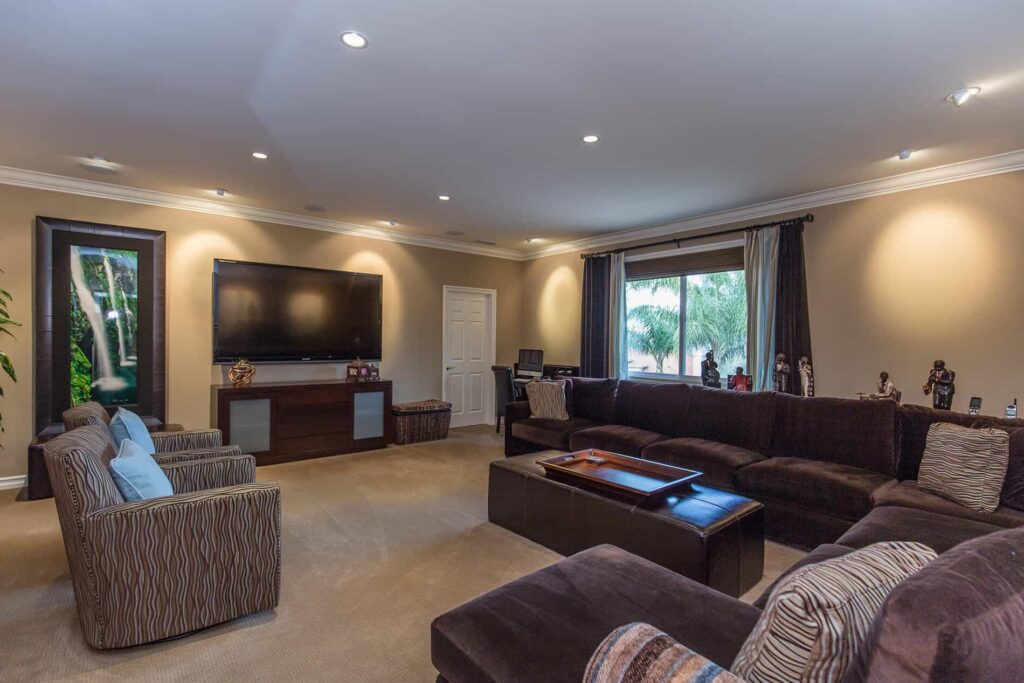Teen Treatment Programs in California
Dialectical Behavioral Therapy
Dialectical Behavior Therapy can help your teen build emotional regulation, mindfulness, and stronger interpersonal skills.
At Hillcrest ATC, we provide DBT in a safe, supportive setting designed to foster meaningful growth and long-term healing.
Parenting a teen can feel like an emotional rollercoaster—often because it is. But if your teen is struggling with a mental health concern on top of the standard hormonal changes and teenage angst, it can feel like an unmanageable rollercoaster with no end in sight. Fortunately, at Hillcrest Adolescent Treatment Center, we are here to help.
If your teen is struggling with emotional regulation, self-destructive behaviors, or difficulty managing stress, you may have heard of Dialectical Behavioral Therapy (DBT). This therapy has become an effective approach for treating various mental health conditions in adolescents. At Hillcrest Adolescent Treatment Center, we integrate DBT into our treatment plans to help teens develop the skills they need to manage intense emotions, build healthy relationships, and make positive choices for their future.
Contact us today to learn more about our teen mental health treatment centers.
What is DBT For Teens?
Dialectical Behavioral Therapy for teens is a structured, evidence-based therapeutic approach specifically designed to help individuals struggling with intense emotional swings, self-destructive behaviors, and interpersonal conflicts. DBT was originally developed by Dr. Marsha Linehan to treat individuals with borderline personality disorder, but has since proven effective for treating other mental health conditions, including anxiety, depression, and self-harm in teens. DBT combines cognitive-behavioral techniques with mindfulness strategies to help teens develop emotional regulation, distress tolerance, interpersonal effectiveness, and acceptance skills.
This process involves:
- Identifying Negative Thought Patterns: Teens are taught to recognize automatic negative thoughts (ANTs), such as “I’ll never be good enough” or “I’m a failure.”
- Cognitive Restructuring: Teens learn how to challenge these thoughts and replace them with more positive or balanced alternatives, like “I can improve with effort” or “Everyone makes mistakes.”
- Behavioral Activation: CBT also emphasizes the importance of changing behaviors. By taking small, positive actions based on new, healthier thoughts, teens begin to break the cycle of negative thinking and acting.
How Does DBT For Teens Work?
DBT works by teaching teens to balance acceptance of themselves and their current situation with the desire to change unhealthy behaviors and thought patterns. The therapy is divided into four key components:
- Mindfulness: Learning to focus on the present moment, increasing awareness of thoughts and emotions without judgment.
- Distress Tolerance: Developing skills to handle difficult emotions and crises without resorting to harmful coping mechanisms.
- Emotion Regulation: Teaching teens to manage and change intense emotions in a healthy, controlled manner.
- Interpersonal Effectiveness: Enhancing communication and social skills to build healthy relationships with others.
Through individual therapy, skills training groups, and phone coaching, DBT provides a comprehensive approach to help teens manage overwhelming emotions, reduce harmful behaviors, and create positive changes in their lives.
The History of Dialectical Behavioral Therapy
DBT was developed in the late 1980s by Dr. Marsha Linehan to address the unique needs of individuals with borderline personality disorder (BPD), particularly those who engaged in self-harm and suicidal behaviors. Dr. Linehan, a psychologist herself, recognized that traditional cognitive-behavioral therapy (CBT) was not sufficient for these individuals, as they struggled to regulate emotions and had difficulty with interpersonal relationships. Over time, DBT has evolved to treat a wide range of mental health conditions, including depression, anxiety, eating disorders, and substance abuse, making it a versatile treatment option for teens facing a variety of challenges.
How Can DBT Therapy Help My Teen?
DBT for teens helps young people manage the overwhelming emotions that often come with adolescence. Whether your teen struggles with anger, sadness, or anxiety, DBT provides effective tools to help them regulate their emotions and make healthier decisions. It also helps teens build stronger relationships by teaching communication and conflict resolution skills, which are especially helpful as they navigate peer pressure and family dynamics.
DBT has been shown to reduce self-destructive behaviors like self-harm and improve overall functioning, giving teens the support they need to thrive emotionally and socially.
The Types of DBT Skills Used For Teenagers
DBT teaches several key skills that are beneficial to teenagers dealing with a range of emotional and behavioral issues:
- Mindfulness Skills: These skills help teens increase awareness of their thoughts, feelings, and physical sensations. Mindfulness allows teens to observe their emotions without reacting impulsively, making it easier to manage stress and anxiety.
- Distress Tolerance Skills: These skills teach teens how to cope with distressing situations without engaging in harmful behaviors. Techniques like self-soothing, distraction, and reality acceptance can be invaluable when a teen is facing a crisis.\
- Emotion Regulation Skills: These skills help teens recognize and label their emotions, reducing emotional intensity and increasing their ability to respond in a controlled and productive manner.
- Interpersonal Effectiveness Skills: This skill set focuses on building healthy relationships, improving communication, and learning how to assert needs without aggression or passivity.
Benefits of DBT Therapy For Teens
Dialectical Behavioral Therapy: DBT For Teens offers a variety of benefits for adolescents struggling with emotional and behavioral difficulties.
Some of the key benefits include:
- Better Emotional Control: Teens learn how to regulate their emotions, reducing impulsivity and emotional outbursts.
- Improved Relationships: DBT helps teens develop healthier, more constructive ways of interacting with others, whether it’s with family members, friends, or romantic partners.
- Reduced Self-Harm and Suicidal Thoughts: DBT has been shown to reduce self-harming behaviors and suicidal ideation by teaching teens to manage distressing emotions in a healthier way.
- Increased Self-Esteem: By learning to manage emotions and build healthy relationships, teens gain confidence in their ability to handle life’s challenges.
- Enhanced Coping Skills: Teens learn a variety of coping strategies that help them deal with stress, anxiety, and frustration in a productive manner.
What Is The Difference Between CBT and DBT?
While both Cognitive Behavioral Therapy and Dialectical Behavioral Therapy are evidence-based treatments that help teens address negative thoughts and behaviors, there are key differences between the two. CBT focuses on identifying and changing negative thought patterns and behaviors, whereas DBT adds a critical component: the concept of dialectics, which emphasizes balancing acceptance with change.
In DBT, teens are taught to accept their current emotional experiences while also working toward change. This makes DBT especially useful for individuals who have difficulty managing emotions or engaging in self-destructive behaviors. Additionally, DBT incorporates mindfulness practices to help teens stay present and avoid becoming overwhelmed by their emotions.
DBT in Our Levels of Care
At Hillcrest Adolescent Treatment Center, we incorporate Dialectical Behavioral Therapy (DBT) into our comprehensive levels of care to ensure that each teen receives the most effective treatment based on their individual needs. Whether your teen is in our Residential Treatment program or participating in our Partial Hospitalization Program (PHP), DBT plays a central role in helping them manage their emotions, improve relationships, and develop coping strategies for lasting recovery.
Residential Treatment
For teens who require more intensive support, our Residential Treatment program offers a structured environment where DBT is integrated into daily therapy. This level of care provides round-the-clock supervision and support, allowing teens to immerse themselves in the DBT skills training while addressing the root causes of their emotional and behavioral struggles. In our Residential Treatment program, teens engage in individual therapy, group therapy, and DBT skills training to help them develop lasting tools for emotional regulation and interpersonal effectiveness.
Partial Hospitalization Program (PHP)
Our PHP offers a less restrictive option while still providing intensive care for teens who need a high level of support. In this program, DBT is used to help teens navigate the challenges of their daily lives while continuing their therapeutic work. Teens attend sessions during the day and return home in the evenings, allowing them to apply DBT skills in real-world situations while maintaining a strong support system. PHP is ideal for teens who need consistent therapeutic intervention but are ready to begin transitioning back to a more independent lifestyle.
Learn More About Dialectical Behavioral Therapy: DBT for Teens
If your teen is struggling with emotional regulation, self-destructive behaviors, or mental health challenges, Dialectical Behavioral Therapy could provide the support they need. At Hillcrest Adolescent Treatment Center, we specialize in DBT and other therapeutic approaches to help teens lead happier, healthier lives. Contact us today to learn more about our treatment programs and how DBT can help your teen take control of their emotions and behaviors.
Enroll Your Teen In Our DBT Program Today
You don’t have to face this journey alone. Hillcrest Adolescent Treatment Center is here to help your teen—and your family—find hope, healing, and a brighter future. As one of the top adolescent dual diagnosis treatment centers, we’re committed to providing exceptional care tailored to your child’s needs.
Contact us today to schedule a consultation or learn more about our programs. Let Hillcrest be your partner in recovery and your guide to a healthier tomorrow.












